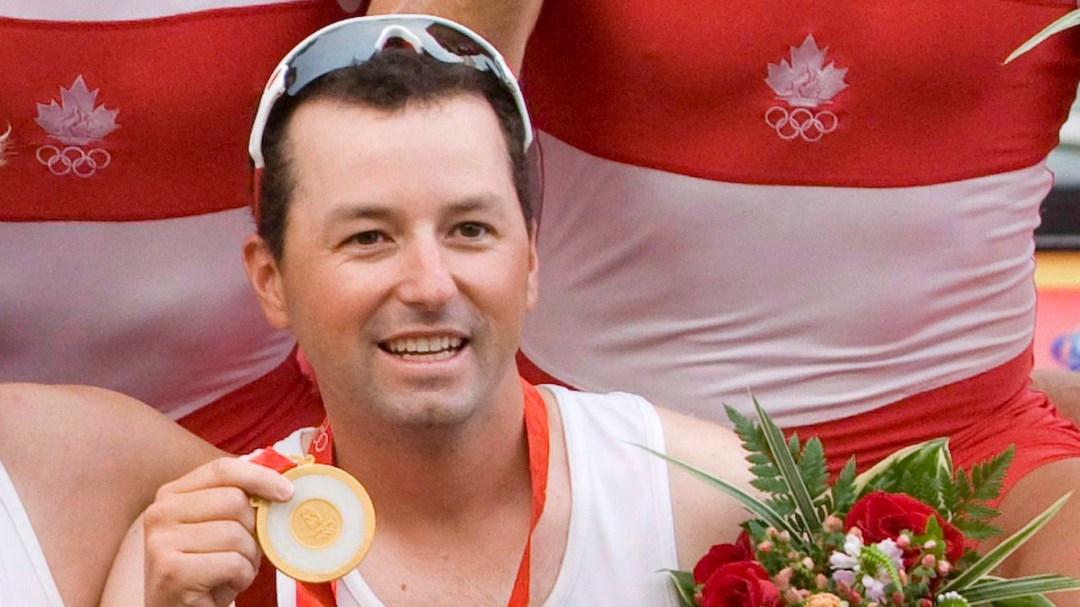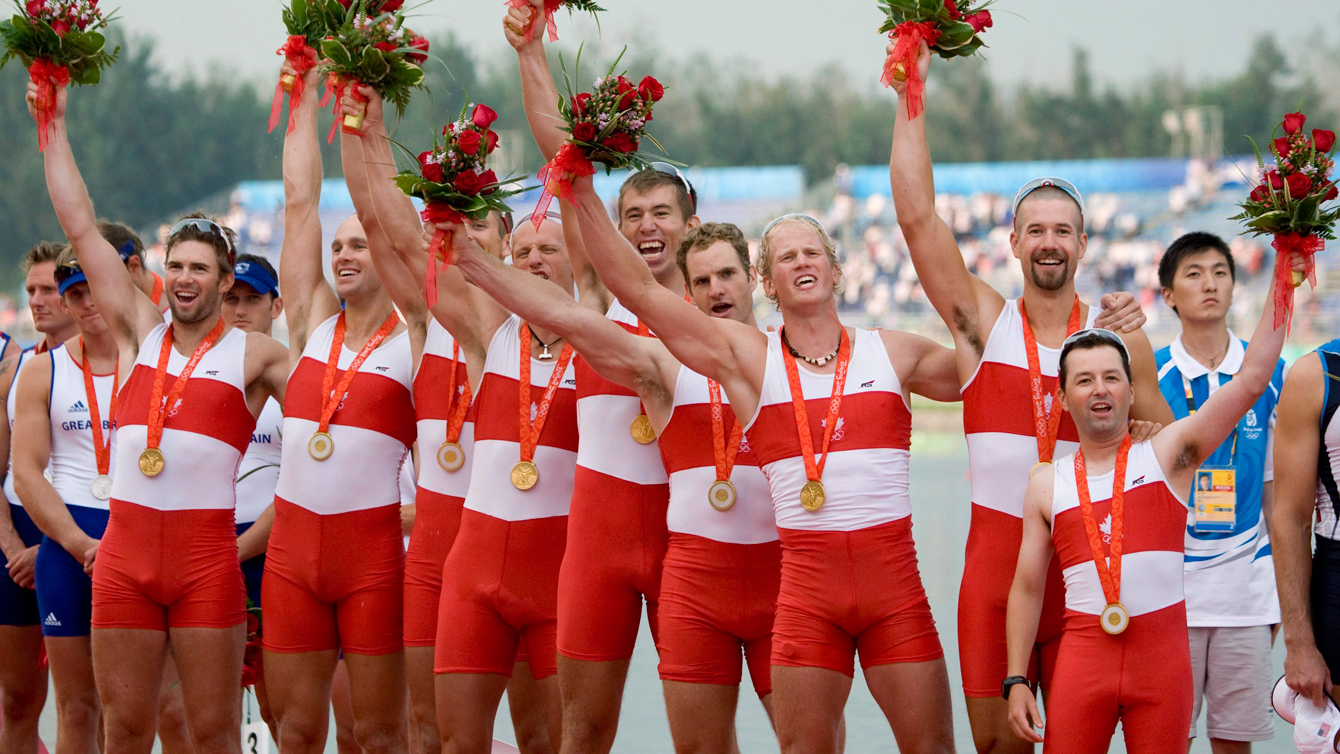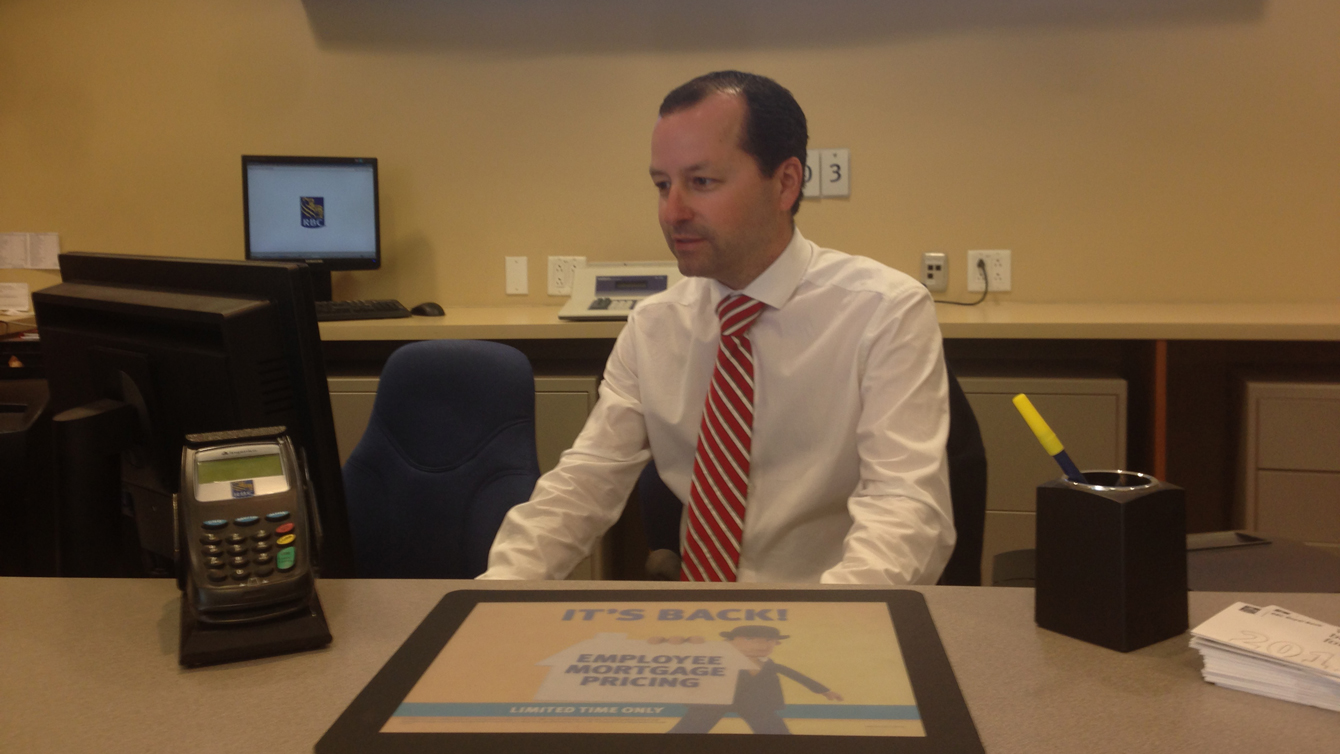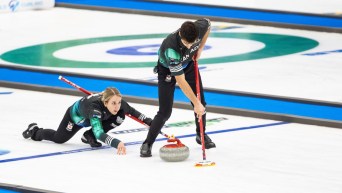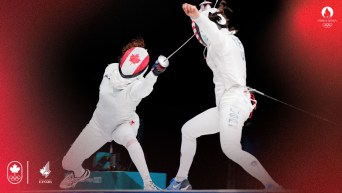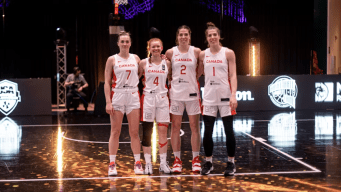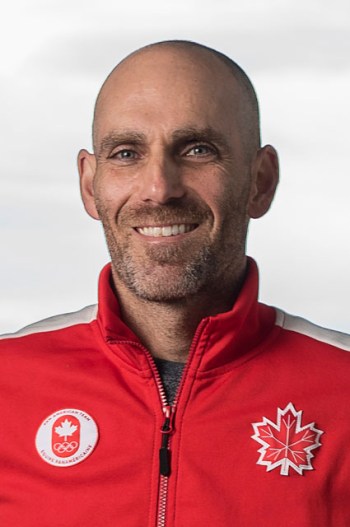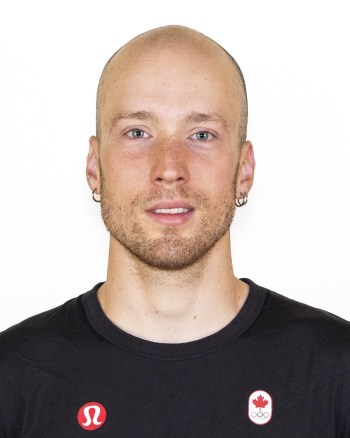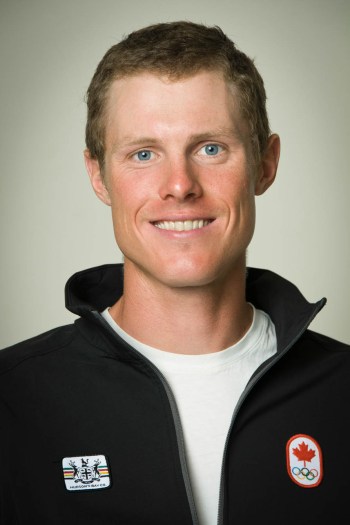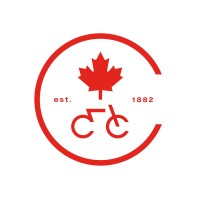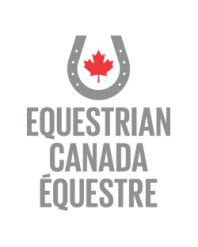Olympic champ and RBC Olympian Price embarks on new career
“For years we’re told, in a very structured way, what to do. When that ends, now what?”
That question posed by double Olympic medallist Brian Price is one many athletes encounter toward the end of their athletic career. Successful competitors tend to be highly regimented, disciplined people whose routines are planned in advance of each day. Then comes a time when those directions no longer exist and a new life beckons.
Watch how Price & men’s eight prepared for London 2012:
“I know people who are multiple medallists coming out of the Olympics and they don’t know what to do. They’re scared, they’re looking for the next step,” Price told Olympic.ca.
“A lot of people make the assumption because we’re Olympians or medallists, it’s all set up for us. It doesn’t work that way.”
For Price, filling out an application for RBC Olympians – a program that allows selected competing and retired athletes the flexibility to train while gaining private sector work experience – in 2013 led to his present day situation. An Olympic rowing champion with a young family, Price, after different experiences within RBC, is starting a career training to be a branch manager in Orangeville, Ontario.
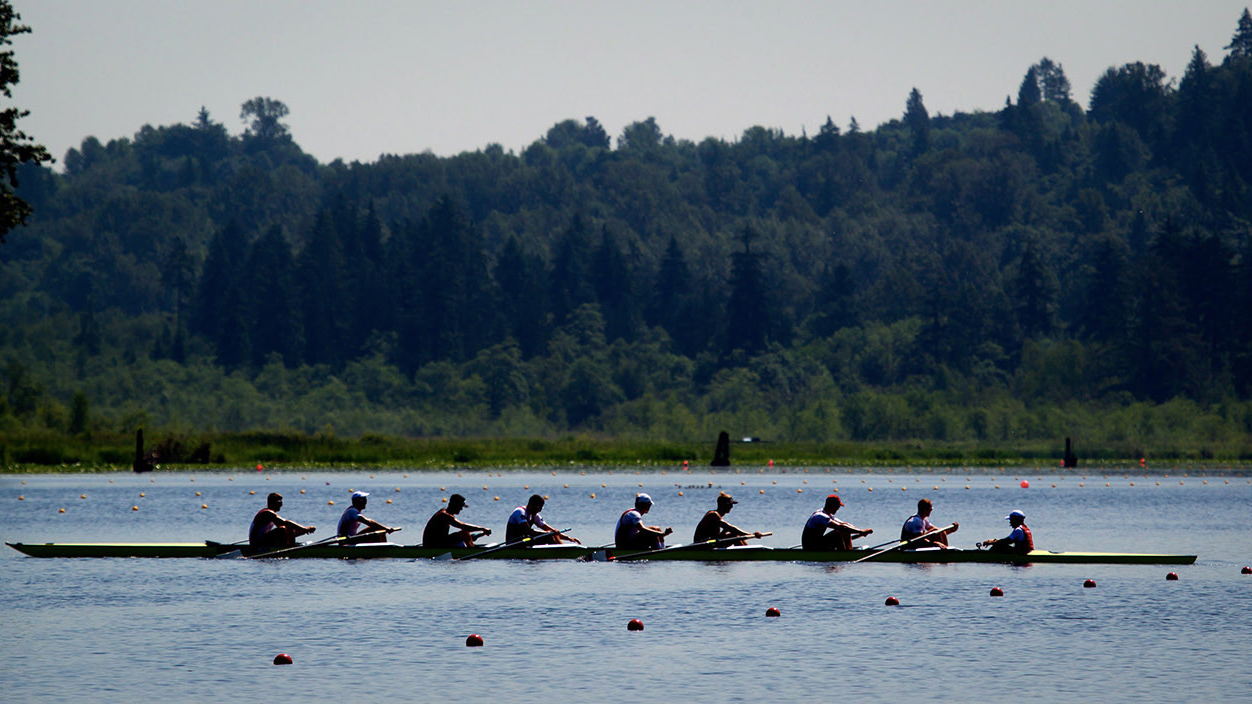
Brian Price (right) on the London 2012-bound eights boat in Burnaby B.C. on July 5, 2012. (The Canadian Press/Darryl Dyck)
His new environment is certainly different from controlling an 18-metre boat on the water, but Price successfully transferred lessons from his rowing days as a winning coxswain to the corporate world, and it has led to valuable time in front of sharp business minds.
“I was often invited to speak with major bank leaders in town hall style settings, which gave me face-to-face access to some top people,” Price recalls in his initial role leading RBC’s employee volunteer program. “I could find out directly what I wanted or didn’t want in carving out my career path.”
Price’s Olympic advantage set him apart from the crowd immediately. His natural leadership – a trait common among top athletes – helped raise the profile of the volunteer initiative that helps communities across Canada with man-hours and financial grants.
“I became the face of the program, and was tasked with owning and growing it.” His work ethic and mindset brought over from his sport career helped Price excel.
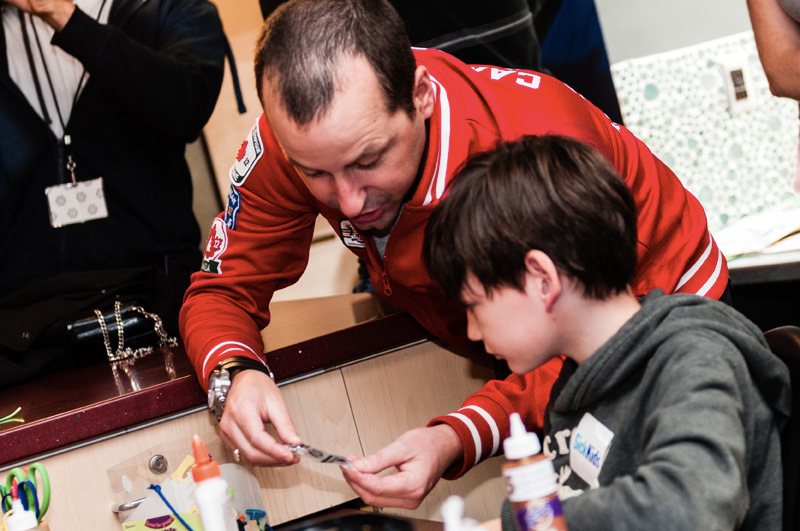
A childhood cancer survivor, Brian Price is always among the first athletes to lend support to SickKids hospital in Toronto.
The rowing icon soon began speaking at town halls as large as 500 people, telling his personal story of beating leukemia as a child and while that stunted his growth, it also made him an ideal coxswain helping Canada to two Olympic podiums. These engagements featuring a real life tale of overcoming adversity to stand atop the world not only sold the volunteer program, it raised Price’s profile within RBC as someone who could be a long-term asset to the organization.
Just as a champion coxswain helps execute the perfect race, Price set up his own career path by making the more than 80-kilometre (each way) daily commute from Orangeville to downtown Toronto once he became an RBC Olympian.
“It was valuable for my career to gain experience at a national office. Short-term pain for long-term gain,” Price recalled specifically requesting that he be near the centre of the action. It was partially due to this commitment Price was suddenly in front of a regional vice president, who helped steer him to his chosen career path.
“After some job shadows, I got a better idea of what the branch environment looks like. I thought maybe the client-facing role – which is highly valued in the industry – would be a good fit for the next 10 years.”
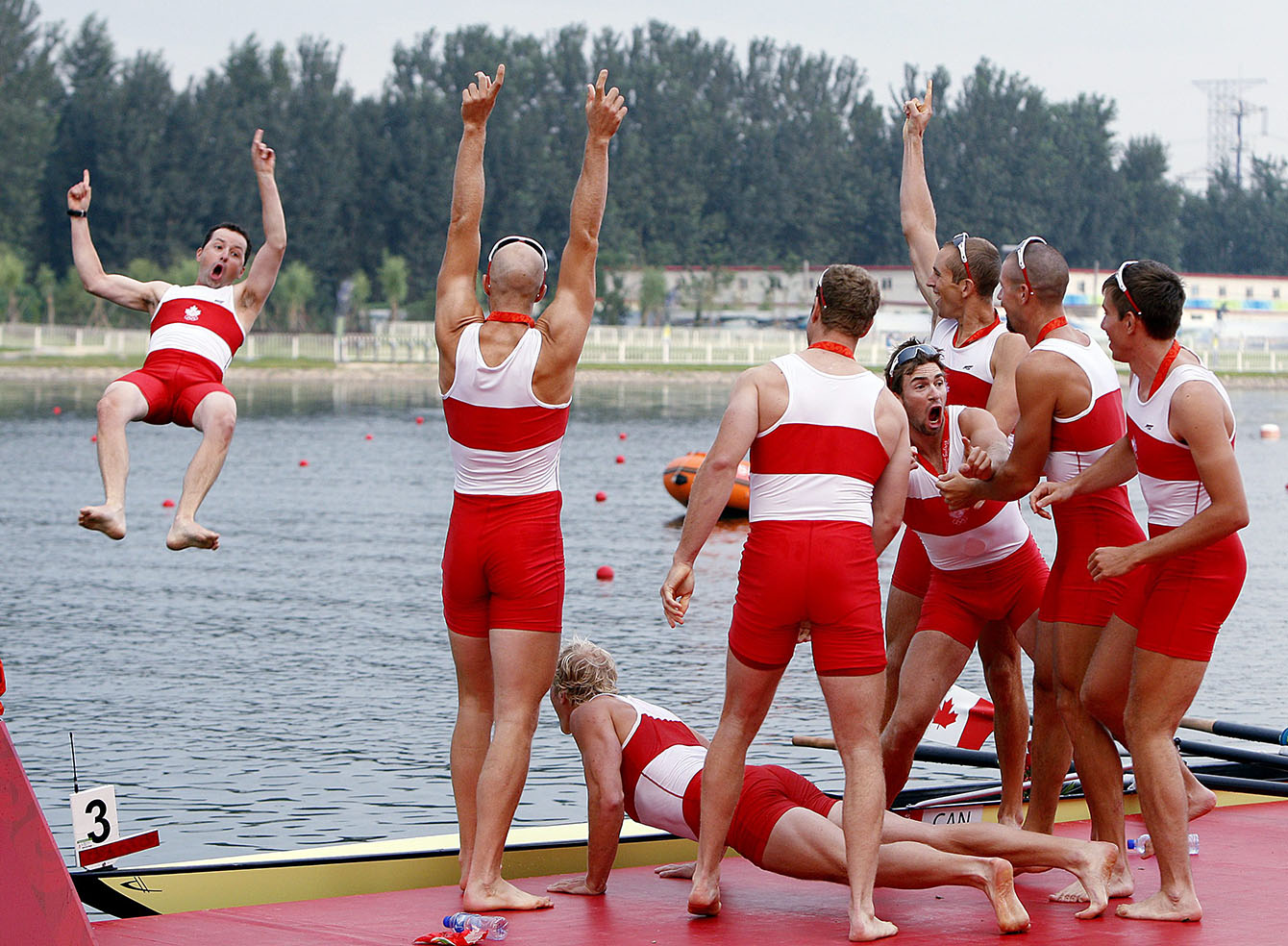
Canadian Men’s Eight coxswain Brian Price gets tossed off the dock by his gold medalist team Canadian Men’s Eight team at the Shunyi Olympic Rowing-Canoeing Park during the 2008 Beijing Olympic Games in Beijing Aug 17, 2008. The Canadian Men’s eight got the gold while Great Britain took silver and USA bronze. THE CANADIAN PRESS / COC ANDRE FORGET
While the 39-year old embarks on a new journey, he has some advice for his fellow Olympians mulling over their post-athletic chapter.
“Take a shot and apply. At the very least, you’re going to have the opportunity to go in and have a job interview,” Price said, remembering that this is an experience many young athletes don’t have after spending the better part of their teenage and adult lives training and competing.
“It doesn’t take a long time, you may not get it or you may get a second interview. It’s a chance for you to do something to set up a career down the road.”
“Just apply and it might be your first job interview. Go for it.”

